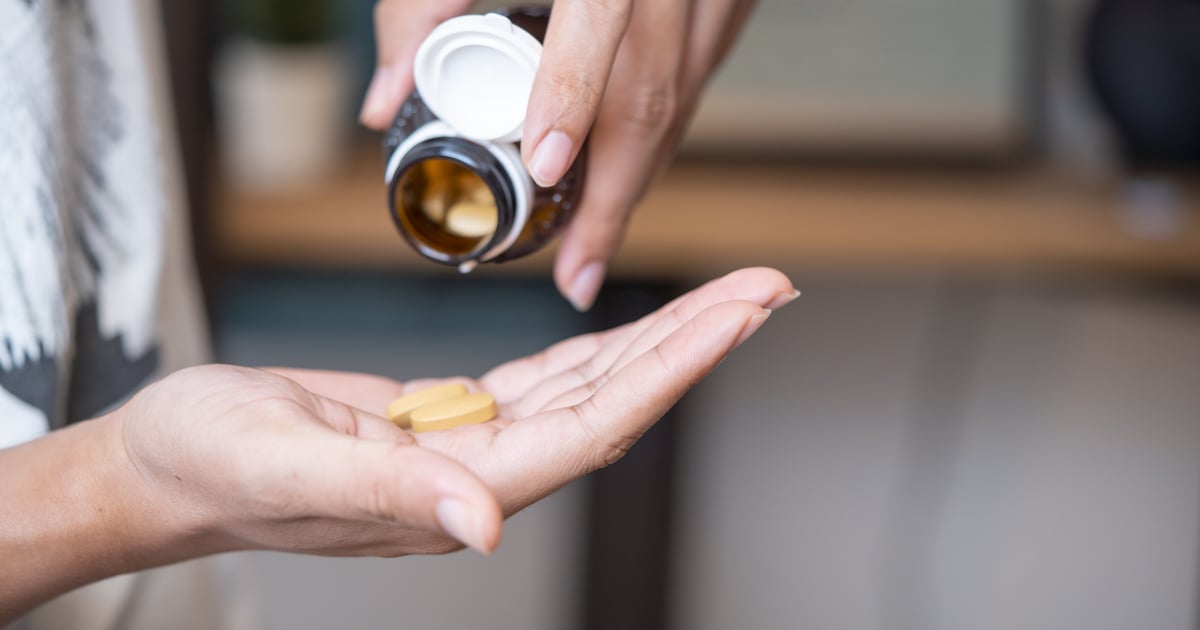
My neck had gotten so stiff a few months ago that I was grimacing in pain just from tipping my head to one side or twisting around. All the neck stretches and foam-rolling in the world wasn’t making a lasting difference. I mentioned this to my doctor a few months ago, and she gave me an unexpected recommendation: taking a fish oil supplement every day, she said, would help with the soreness. I rummaged around in my medicine cabinet, found some fish oil pills gathering dust, and started taking them with dinner every night.
And it actually worked! My neck loosened up, and a few months since starting that regimen, I barely feel any kind of tightness. I get to twist and turn and roll my neck around to my heart’s content.
I was shocked it was that effective, actually, because medications typically don’t do anything for my muscle pain. Ibuprofen, Advil, even a prescription anti-inflammatory I took for a foot injury last year — nothing made a difference until I tried fish oil. So what was happening here? Can fish oil actually soothe soreness, and how? I talked to Trisha VanDusseldorp, PhD, CSCS, assistant professor of exercise science at Kennesaw State University, to find out.
Does Fish Oil Help With Muscle Soreness?
Fish oil “absolutely” helps with muscle soreness, Dr. VanDusseldorp told POPSUGAR. That’s because it reduces inflammation, which is what causes the pain of sore muscles: your muscle cells are inflamed and pressing down on your pain receptors, she explained. The omega-3 fatty acids in fish oil actually reduces that inflammation and the feeling of pain and soreness that comes with it.
How Much Fish Oil Should I Take For Sore Muscles?
Take between two and four gram of fish oil every day for max effectiveness, Dr. VanDusseldorp said. She led a study last year to find the most effective dosage, and says that’s “the ultimate dose” for most of us. Elite athletes might see a slight boost from taking six grams, but there’s “no major, significant differences” between six and the lower dosages.
You can expect to see a difference in the long-term, Dr. VanDusseldorp added. In other words, taking fish oil for a week before a marathon, for example, won’t be effective at preventing soreness. “You have to load the body with it,” she explained. You’ll start to see the benefits after six weeks of supplementation. She said you can take fish oil in capsule form or liquid, or (if you don’t or can’t eat fish products), an algae-based form is available and “just as effective.”
Should Everyone Take Fish Oil Supplements?
If you don’t eat two to four servings of fish a week, Dr. VanDusseldorp highly recommended taking fish oil supplements, “not only for muscle soreness, but for other health benefits as well,” such as easing joint pain, improving heart health, and increasing good cholesterol. Omega-3 fatty acids, like those found in fish oil, can even help lower levels of depression.
If soothing soreness is what you’re after though, also note that it doesn’t have to be the intense, exercise-related soreness you get after a tough workout; fish oil can also help with soreness related to, say, sitting too long, sleeping weird, or you know, randomly getting neck pain. “It can reduce whole-body inflammation,” Dr. VanDusseldorp said, citing research that showed fish oil is just as effective as NSAIDs like ibuprofen and Advil for reducing chronic back pain.
So if soreness is an issue for you, no matter where it is on your body or how long you’ve been dealing with it, check in with your doctor and give fish oil a try. If you’re not getting fish in your diet, “There’s no argument against taking it,” Dr. VanDusseldorp said.
